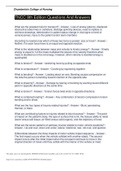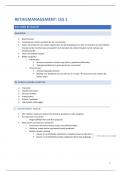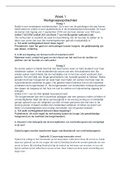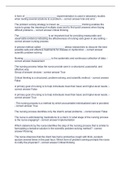Thesis
HRPYC81: Project 4809, What Motivates People to do Volunteer Work
- Institution
- University Of South Africa (Unisa)
I got 98% for HRPYC81! Please do not plagiarise as you will be penalised. Ps: throughout my thesis I continuously communicated with Prof. Papaikonomou to ensure that I was on the right track - with regards to the content and the layout of my report.
[Show more]












